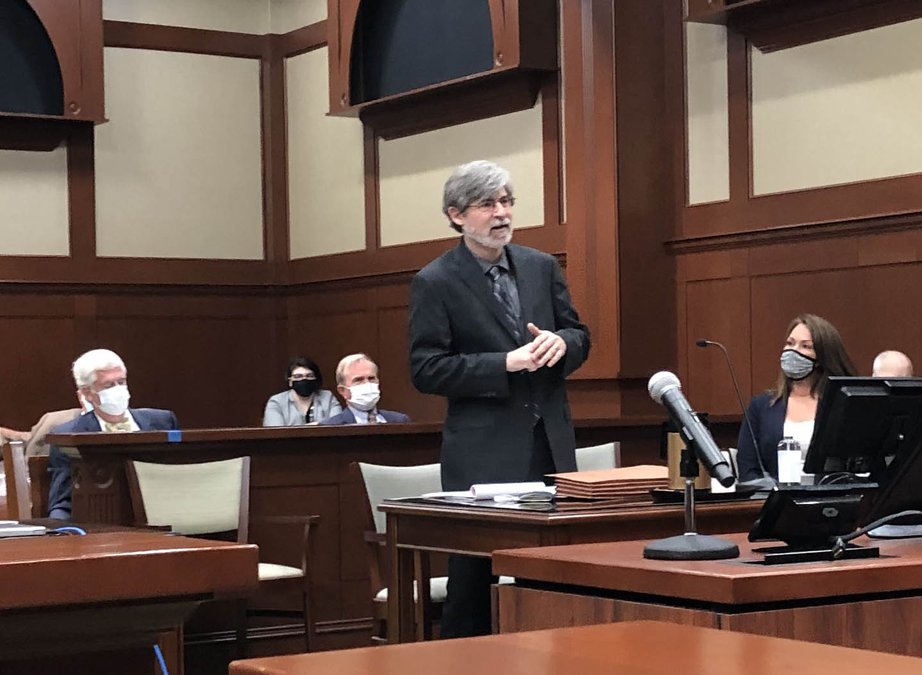COVINGTON, Ga. — The Georgia Court of Appeals’ recent ruling that a Newton County court “properly dismissed” requests for a judge to intervene in a statue’s removal from the Covington Square likely will be appealed to the state’s highest court.
One of the appealing groups, the Sons of Confederate Veterans (SCV), filed an order saying it planned to take the ruling to the Georgia Supreme Court, a Court spokesman confirmed.
SCV attorney T. Kyle King said “naturally” his clients were “disappointed in the ruling.”
“We will, of course, seek review of this decision by the Georgia Supreme Court, which ought to take up this matter of significant public importance,” King said.
The appeals court said on Thursday, July 22, that Newton County Superior Court Judge John Ott ruled correctly in 2020 that the appellants did not prove they had legal “standing” to file a lawsuit seeking damages and an injunction against the Newton County government’s planned removal of the 115-year-old statue.
It said the appellants — Covington resident Tiffany Humphries and local and state chapters of the Sons of Confederate Veterans (SCV) — had not proven the county’s planned action would injure them in a “concrete" way rather than an "abstract" way, the appeals court ruled.
The ruling stemmed from the Newton County Board of Commissioners’ July 14, 2020, vote to remove the granite statue from a park in the middle of the Square where it has stood since 1906.
Humphries had filed a lawsuit seeking damages and an injunction in Newton County Superior Court the day before the board of commissioners voted, while the SCV filed a similar suit the day after the vote.
Ott heard oral arguments during a hearing in late July and issued his ruling Sept. 14, 2020, that “the plaintiffs lacked standing to file suit because they suffered no injury and that, even if they had standing, their claims were barred by sovereign immunity.”
The judge later ordered the Newton County government not to remove the statue — as some other counties had done — until all court appeals had ended.
Sovereign immunity was the legal concept in the Georgia constitution in September 2020 that governments cannot be sued for an action done in their official capacities. Georgia voters in November 2020 voted to amend the constitution to waive sovereign immunity on actions taken after Jan. 1, 2021.
The appeals judges — Presiding Judge Stephen Dillard, Amanda Mercier and Verda Colvin — said Humphries and the SCV argued they had a “right to bring a cause of action for any conduct prohibited” by a 2019 state law that halted the removal of Confederate monuments because Newton County has “expressed an intent to remove or have already removed” the statue.
Newton County responded that the appellants lack standing because their injuries are “purely psychic” and were neither "concrete" nor "particularized" — defined as affecting the plaintiff "in a personal and individual way," the ruling stated.
In addition, the judges said the county said in its argument that “‘damages’ must be understood as being defined as 'compensation for injury'" because the 2019 state law did not define “damages.”
“The trial court agreed with (Newton County) that the appellants lacked standing, and so do we,” the appeals court judges wrote.
They wrote that “the appellants allege no injuries beyond complaining that the removal of the Confederate monuments would violate (the 2019 law).”
“Suffice it to say, it is not enough for the appellant organizations to tout their dedication to ‘honor[ing] the memories and legacies of their forefathers who fought for freedom during the War Between the States’ or assert that they ‘will suffer injury to [their] rights and dignity’ if the monuments are removed,” the judges wrote.
“And as for Humphries, she did not allege any degree of concern with the monuments beyond her status as a private citizen of Newton County.
“These vague claims of ‘injury’ are, then, far too abstract to confer standing on the appellants. Accordingly, because each of the appellants lacked standing, the trial court correctly dismissed all of these actions.”
Georgia courts generally determine if a person has legal “standing” to file a legal action seeking damages based on past rulings by the U.S. Supreme Court and other courts, according to information from the Atlanta-based Hasner Law firm and others.
“Standing requires that you sustained the injury before you filed the lawsuit. The harm cannot be based on a future claim or a hypothetical scenario of what could happen,” according to the law firm.
Spokesman Martin O’Toole said the SCV is considering asking the appeals court to reconsider its ruling rather than going to the state Supreme Court.
“We think there are some manifest errors in the decision,” O’Toole said.
King said the SCV believed the Georgia General Assembly’s “clear intention” when it approved a 2019 law to halt removal of memorials except in a few cases was “to confer standing on citizens” by law and “ought to have prevailed” in the case.
The Newton County government did not immediately respond to a request for comment today.






